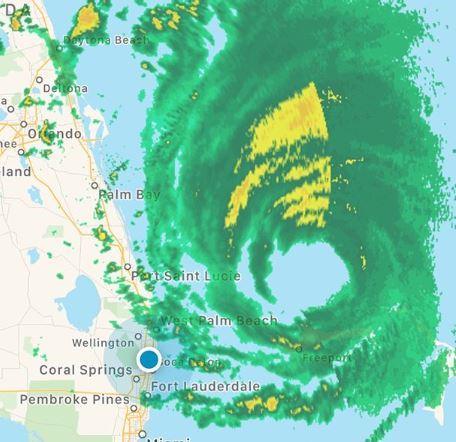RBR+TVBR OBSERVATION
By Craig Fugate
As Hurricane Isaias approached the Eastern Seaboard last week, our nation’s news organizations and communications networks turned some of their attention from keeping Americans safe during the COVID-19 pandemic to keeping residents safe during the storm.
Cable news networks tracked Isaias’s path during their newscasts and aired briefings from local public safety officials. National newspapers provided forecasts and deployed correspondents to cover the storm’s impact. Wireless carriers sent out emergency alert messages to their subscribers passing along evacuation orders warning them about the approaching storm.
Yet, while these efforts are important in informing the public, they cannot match the immediacy and importance of local media outlets during times of emergency.
When the power goes out and cellular networks are rendered unusable, local media are often the only source of reliable information to learn what is happening and how to stay safe. As emergency safety officials know through first-hand experience, broadcast radio and television stations and community newspapers are the best means to communicate with a wide audience before, during and after the storm passes.
As Isaias hit, radio and TV stations went wall-to-wall with emergency coverage and newspapers devoted their websites and print pages to comprehensive storm news. Reporters in the field provided critical information about the storm’s impact on communities. Anchors and radio hosts offered a comforting voice for those riding out the storm. With the storm having passed, local media outlets are now pivoting their attention to helping their communities recover from the devastation and rebuild even stronger.
Local news operations are best positioned to cover local emergencies because of their deep roots to their communities. Journalists live and work in the area and know the effect disasters can have on their day-to-day lives. These outlets have been through storms before and have institutional knowledge about what areas are impacted the worst. Public safety officials have built relationships with local radio and TV stations and newspapers over the years and trust them to provide reliable, critical information.
Unfortunately, I fear the financial impact of the COVID-19 pandemic could seriously hinder local media’s ability to cover dangerous storms and emergency situations, just as we approach peak hurricane season.
I am encouraged that lawmakers are considering relief measures in the next stimulus bill that would help struggling local radio and TV stations and newspapers. The Local News and Emergency Information Act would go a long way in helping many small broadcasters and newspapers stay on the air and continue serving their communities.
As evidenced during Hurricane Isaias, local media play an outsize and irreplaceable role in keeping our families safe and our communities secure during times of emergency. I urge Congress to include provisions to help local radio and TV stations and community newspapers in any forthcoming COVID-19 stimulus relief efforts.
Craig Fugate served as FEMA Administrator from May 2009 through January 2017. He previously served as Emergency Management Director for Florida Gov. Jeb Bush.





